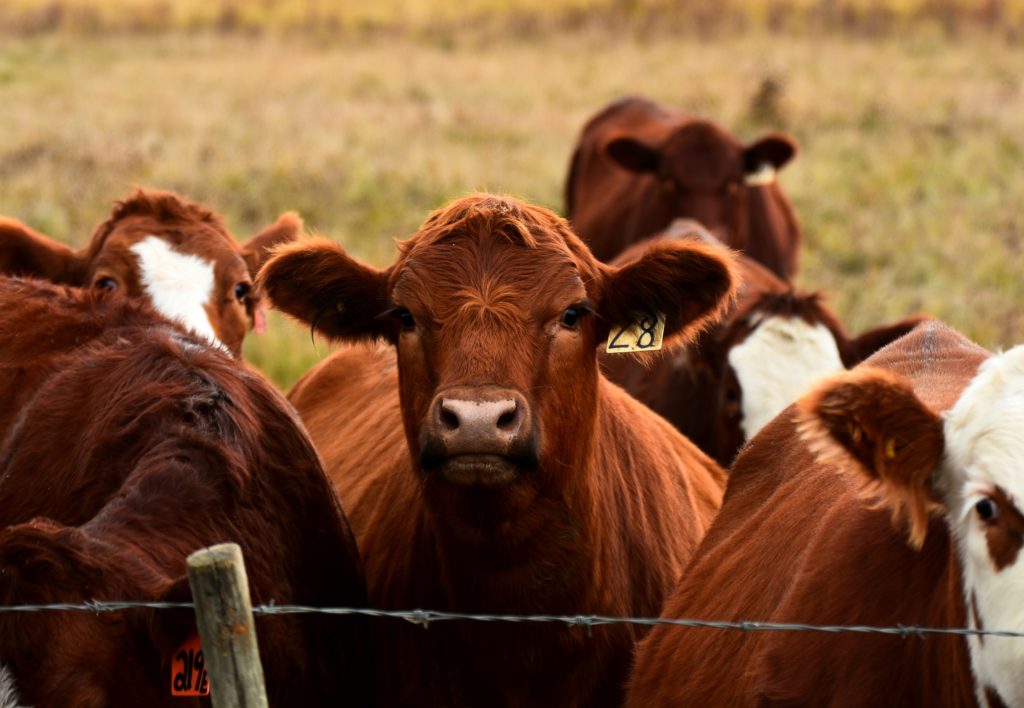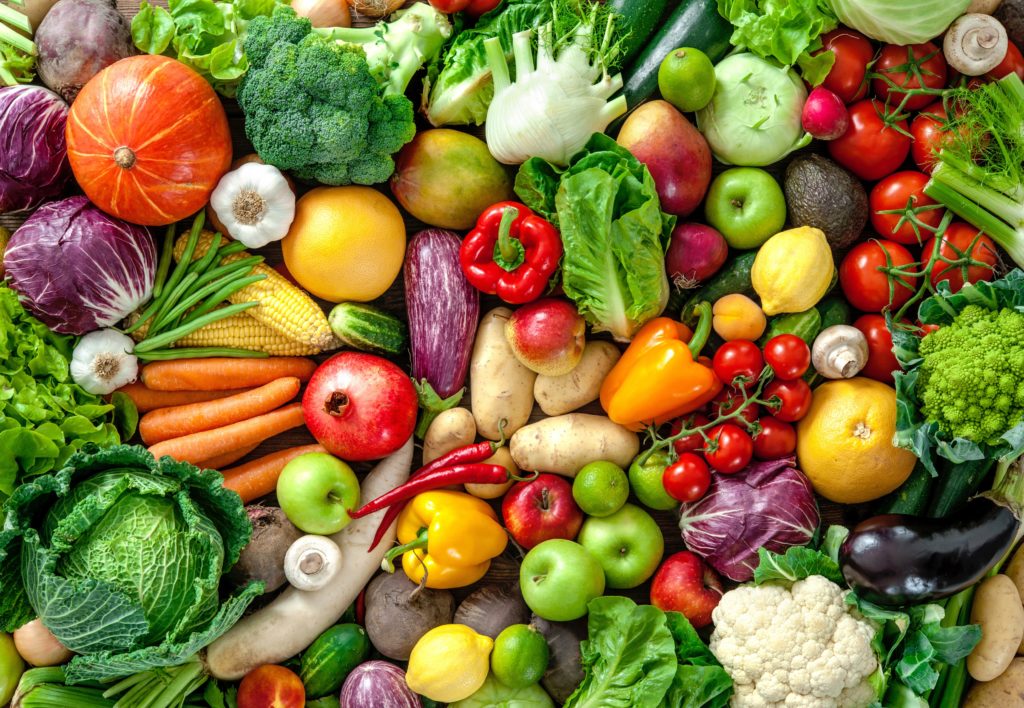FDA or USDA Regulated
Foods Regulated by FDA and USDA
Food Products – FDA or USDA Regulated
Confused about the difference between FDA and USDA regulated food products? We provide a comprehensive guide to understanding the nuances of food regulation in the United States, including which products are regulated by the FDA and which fall under the jurisdiction of the USDA. With our expert insights and user-friendly format, you'll be able to navigate the complex world of food regulation with confidence, ensuring compliance and consumer safety. Whether you're a food manufacturer, distributor, or consumer, our web page provides the resources you need to make informed decisions about the foods you produce, purchase, and consume.
FDA vs. USDA: What is the Difference?
The United States Department of Agriculture (USDA) and the Food and Drug Administration (FDA) are the two main government agencies that regulate the nation’s food supply, whether produced domestically or imported from foreign countries. Who regulates what food product depends on how that food is processed.
The Food and Drug Administration (FDA) is responsible for protecting and promoting public health by evaluating and enforcing safety practices for food products including packaged foods, canned foods, beverages, bottled water, animal feeds and foods, dietary supplements, and some other types of food products. The FDA’s mission also includes evaluating the safety of new ingredients for food and new color additives, ensuring proper labeling of food and dietary supplements, and fostering safe manufacturing practices.
The Department of Agriculture (USDA) has a primary mission to promote the country’s agricultural production and ensure that the products coming from our agricultural resources are safe and better nourish Americans. USDA’s food safety program ensures that the nation's commercial supply of meat, poultry, and egg products is safe, wholesome, and properly labeled, and packaged.
What Does FDA Regulate?
In-Depth Coverage: USDA-Regulated Products
- Importing USDA-Regulated Food Products
- Import Regulation by USDA Agricultural Marketing Service (AMS)
- Food Products – FDA or USDA Regulated
- Country of Origin Labeling
- Importing Animals, Animal Products, and Biologics into the US
- Importing Meat, Poultry, and Egg Products into the US
- Labeling and Marking of Imported Meat, Poultry, and Egg Products
- USDA National Organic Program (NOP)
- Agricultural Safeguards and USDA Licensing
What Regulates What
The majority of the food supply (80% or more) is regulated by FDA. FDA is responsible for most conventional foods including dairy products, seafood, produce, packaged foods, canned foods, dietary supplements, beverages, bottled water, and whole eggs.
Meat
USDA is the primary agency responsible for regulating meat, including beef, pork, lamb, and poultry. When it comes to regulating meat, there are two services for which USDA is generally known: meat inspections and meat grading. Safety inspections are mandatory in meat-packing and meat-processing plants.
The USDA’s Agricultural Marketing Service also offers producers the option to grade meat such as “USDA Prime” and “USDA Choice”.
The U.S. FDA has jurisdiction over imported food meats such as bison, buffalo, venison, rabbit, game meat, and all other foods not covered by the Federal meat, poultry, and egg products inspection laws. Products from animals not amenable to the Federal Meat Inspection Act and Poultry Products Inspection Act are subject to federal regulation by the FDA as “food” under the Federal Food, Drug, and Cosmetic Act.
In-Depth Coverage: Importing Food Products
- What is FDA Food Safety Modernization Act (FSMA)?
- Prior Notice of Imported Foods
- FDA Food Facility Registration
- Risk-Based Preventive Controls for Human Food
- Risk-Based Preventive Control for Animal Food
- Protect Food against Intentional Adulteration
- What is Foreign Supplier Verification Program (FSVP)?
- What is FSMA Produce Safety Rule?
Meat and Poultry Products Regulated by the USDA
- Food items consisting of 2% or more cooked, or more than 3% raw amenable meat or poultry ingredients
- 30% or more fat, tallow or meat extract (alone or in combination)
- 10% or more cooked poultry skins, giblets or fat (separately)
- 10% or more of cooked poultry skins, giblets, fat and meat
- 15% or more cooked poultry meat prepared for sale, only to institutional users such as hotels, restaurants, and boarding houses (for use as a soup base or flavoring)
Meat and Poultry Products Regulated by the FDA
- Products with less than 3% raw meat, less than 2% cooked meat (or other portions of the carcass)
- Less than 30% fat or tallow, are overseen by FDA, as are products containing “other meats.”
Casings
Casings are under U.S. FDA jurisdiction. Imported casings are also required to comply with USDA APHIS requirements (see 9 CFR Section 96.3: Certificate of animal casings)
Denatured Inedible Meat, Poultry, Egg Products and Rendered Fats
The U.S. FDA has jurisdiction over imported inedible meat, poultry, and egg products and rendered fats that are denatured.
In-Depth Coverage: Marketing and Advertising Compliance
- Federal Trade Commission (FTC) Advertising Rules
- Made in USA Standard
- FTC Regulation on Environmental Claims
- Adverting and Marketing on the Internet
- Label Claims for Conventional Foods and Dietary Supplements
- Dietary Supplement Advertising: What is FTC's Truth-in-Advertising Law?
- USDA Country of Origin Labeling (COOL)
- FTC Rules & Regulations on Food Advertisement
Seafood
FDA regulates most seafood, except for catfish such as Siluriformes fish and fish products, which is regulated by USDA.
Eggs
Shell Eggs
Jurisdiction over imported shell eggs is shared by three federal agencies: the Animal and Plant Health Inspection Service (APHIS), the Food and Drug Administration (FDA), and the Agricultural Marketing Service (AMS).
1. USDA-APHIS is responsible for ensuring that all imported agricultural products shipped to the United States from abroad, including shell eggs, meet that agency's entry requirements, which are designed to exclude pests and diseases of agriculture.
2. FDA is generally responsible for the safety of shell eggs. Foreign producers must comply with the requirements of the FDA’s “Egg Rule,” found in 21 CFR Part 118 – Production, Storage, and Transportation of Shell Eggs. Only the registration and refrigeration portions of the “Rule” apply to shell eggs intended for pasteurization (breaking stock).
3. USDA-AMS oversees the importation of shell eggs for breaking and table eggs destined for the ultimate consumer. The agency is responsible for checking imported shell eggs to ensure that they are properly labeled, and that restricted eggs are disposed of properly. AMS notifies FDA when an application is made to import shell eggs into the United States. It notifies FDA before it releases any lots of imported shell eggs into domestic commerce. An application to import shell eggs into the U.S. must be made on AMS Form, LPS-222, and be accompanied by a foreign health certificate.
In-Depth Coverage: Importing Cosmetics
Egg Products
USDA-FSIS regulates the importation of egg products, which must originate from countries and plants eligible to export to the United States. Currently, Canada and The Netherlands are the only countries where plants are eligible to export egg products to the United States. For egg products void of the shell such as liquid eggs and dried egg whites please consult with the US Department of Agriculture (USDA) Food Safety and Inspection Service (FSIS) as they have import requirements specific to these products.
See more information on shell eggs: 21 CFR PART 118
Dairy Products
Dairy products are regulated by FDA.
Produce
Raw fruits and vegetables are generally regulated by USDA, while processed fruits and vegetables are regulated by FDA.
Sandwiches
Open-faced sandwiches, where the ratio of meat to bread (and other ingredients) is more than 50%, are regulated by the USDA.
Sandwiches that have two slices of bread are regulated by the FDA. This is because the ratio of meat to other ingredients is less than 50%.
In-Depth Coverage: Importing Medical Device
Labeling of Food Products
Both the USDA and FDA regulate labeling for food items sold in the United States.
The labels on products regulated by these two entities do share many common features, such as a statement of identity, net quantity declaration, nutrition label, ingredient statement, and responsible party information. However, there are some differences in the information found on their respective labels.
USDA or FDA: Product Responsibility
The USDA’s Food Safety and Inspection Service (FSIS) has primary responsibility for the regulation of food labeling for meat, poultry, and egg products under the Federal Meat Inspection Act, the Poultry Inspection Act, and the Egg Products Inspection Act, which require Federal inspection and regulation of meat, poultry, and processed egg products prepared for distribution in commerce for use as human food. They also regulate food labeling for exotic species of animals under the Agricultural Marketing Act.
Meanwhile, the FDA oversees the labeling of foods and food ingredients under the Federal Food, Drug, and Cosmetic Act, in addition to the Fair Packaging and Labeling Act.
In-Depth Coverage: Country of Origin
- Country of Origin of Imported Merchandise
- Customs Ruling: Country of Origin
- Country of Origin: Food Products
- Country of Origin: Chemical and Pharmaceutical Products
- Country of Origin & Country of Manufacture: CBP vs. FDA
- Country of Origin: Substantial Transformation or Country of Assembly Test
- Country of Origin and Free Trade Agreement
- Country of Origin and Section 301
Quick Link To U.S. Customs & Import Requirements
FDA-Regulated Products and Import Requirements
- What is Food Safety Modernization Act (FSMA)?
- Prior Notice of Imported Foods
- Food Facility Registration
- Risk-Based Preventive Controls for Human Food
- Risk-Based Preventive Control for Animal Food
- Standards for the Growing, Harvesting, Packing, and Holding of Produce for Human Consumption
- What is Foreign Supplier Verification Program (FSVP)?
- Protect Food against Intentional Adulteration
- FDA Regulated Product in Foreign Trade Zone (FTZ)
- Entry Review Process for FDA Regulated Products
- Country of Origin VS Country of Manufacture
- Foods Regulated by FDA or USDA: What is the Difference?
- Label and Labeling Claims for Conventional Food and Dietary Supplements
- What is USDA Country of Origin Labeling (COOL)?
- Import for Export of FDA Regulated Products
- FDA Regulated Products in Personal Baggage or Sending by Mail or Courier
- International Mail Facility (IMF) and FDA Regulation
- Importing Biological Product Regulated by CBER
- Importing Cosmetics and Voluntary Cosmetic Registration Program (VCRP)
- Importing Drugs into the U.S.
- Importing OTC Drugs into the U.S.
- Importing Veterinary Drugs into the U.S.
- Importing Tobacco Products into the U.S.
- Importing Medical Devices into the U.S
- Importing Food Products into he U.S.
- Importing Radiation-Emitting Products into the U.S.
Customs Clearance and Import Requirements
- Entry of Imported Merchandise
- What is Section 321 Entry?
- What is Automated Commercial Environment (ACE)
- What is an Automated Broker Interface (ABI)?
- Who is Ultimate Consignee?
- What is Non-Resident Importer Program?
- Country of Origin of Imported Merchandise
- What is the Country of Assembly?
- What if the FDA's Country of Manufacture?
- Marking of Country of Origin on U.S. Imports
- What is Customs Bond?
- Reconciliation Prototype and Bond Rider
- Who Needs a Customs Broker?
- What is Customs Ruling Program?
- Classification of Imported Goods
- How is imported merchandise appraised?
- What are Import Quotas?
- What are Trade Remedy Duties?
- Antidumping Duty (AD) and Countervailing Duty (CVD)
- What is Foreign Trade Zone (FTZ)?
- What is Importer Security Filing (ISF)?
- What is Temporary Importation under Bond (TIB)
- What is In-Bond Process?
Guidance on customs & logistics solution for traditional and e-commerce importers and exporters
Importer Security Filing (ISF)
An ISF is required when cargo (ocean only) laden on vessel at a foreign port is destined for shipment to the U.S. Under ISF rule, some importing information and idetails regarding cargo must be transmitted to the CBP at least 24 hours before goods are loaded onto the vessel.
Customs Clearance
All goods imported into the U.S. are required to be declared to CBP. Our customs broker will help you stay in compliance with customs laws and regulations and clear your goods quickly and efficiently with our electronic Automated Commercial Environment (ACE) and Automated Broker Interface (ABI) Single Window System.
Freight Forwarding
Looking for a freight forwarding partner? To move your cargo from its current location through customs to its final destination we will partner with you to find the best way for your business. Whatever your transportation, logistics or customs clearance needs, we will do our best to customize a solution for your needs.
Warehousing & Distribution
Our warehouse facility offers great potential for serving as a regional hub with over 145,000 SF storage capacity close to Los Angeles Airport & Los Angeles/Long Beach Sea port. With our extensive experience in freight services, your import/export cargo will be handled quickly and effectively.
Section 321 Entry
Section 321 entry allows importing free of duty and tax for shipments imported by one person on one day having a fair retail value in the country of shipment not more than $800. We provide our resident and non-resident clients with dedicated ACE eManifest solutions for Section 321 entry of all modes of transportation.
Non-resident Importer Program
If you want to sell your products in U.S. marketplaces, but you are a business owner located outside of the U.S. and do not have an entity or presence in the U.S., you need to be established as a Foreign Importer of Record before your products can be imported into the U.S. We can help you.
E-Commerce
The Internet has made it easy to find and purchase items from almost anywhere in the world. Our e-commerce experts will help you find the right solution for your international transportation, customs clearance, and delivery to your final destination. We also provide value-added repackaging, warehousing and distribution services.




















